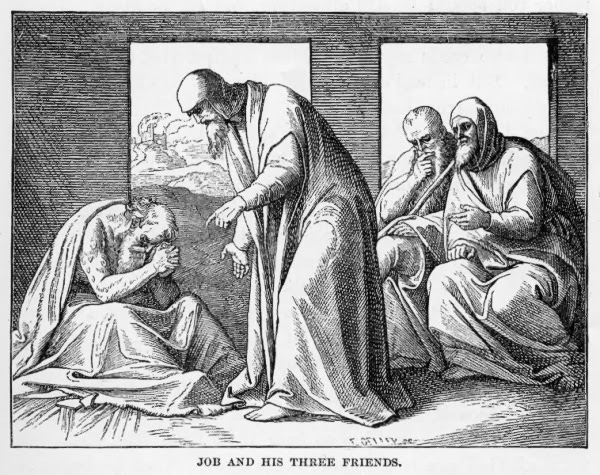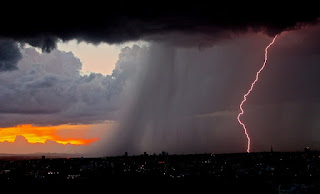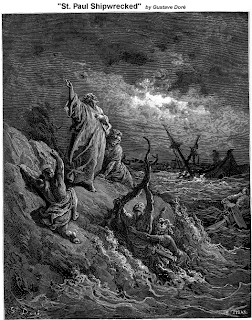TO CHEW ON: " 'For as in the days before the flood, they were eating and drinking, marrying and giving in marriage, until the day that Noah entered the ark, and did not know until the flood came and took them all away, so also will the coming of the Son of Man be.' " Matthew 24:38-39
Our reading gives us some natural signs that herald the near return of Christ including:
" '…the sun will be darkened, and the moon will not give its light; the stars will fall from heaven, and the powers of the heavens will be shaken' " - Matthew 24:29.
What causes this unnatural darkening? Volcanic matter in earth's atmosphere?
What are those falling stars? Meteors and comets plowing into us?
I can just imagine how such natural disasters will be reported in the news. Scientific experts will analyze and prescribe. They will be the fault of fracking, or fossil fuel use, or CO2, or disturbed ecosystems, or weakened magnetism at the poles, or pollution, or… We will be told, if we only do more of this, less of that, the balance will right itself.
Meanwhile wherever it can, life will go on as usual - Matthew 24:37-38, 40-41.
I describe this scenario because even for those of us who have read these Bible passages and have been forewarned, it's easy to get lulled into complacency by the naturalistic explanations of scientists and those who supposedly understand earth's mechanisms (or at least have lots of theories).
Believers expressing their take on events are / will be mocked no less than Noah was. They're even viewed as dangerous because of their convictions that supernatural forces are at work here and thus they don't buy into scientific prescriptions of how to save the earth.
The billboard sign I take from this passage for myself—for all of us who believe these prophecies—is BE ALERT! Be watchful for Jesus' second coming.
" ' … when you see these things, know that it is near' " - Matthew 24:33.
" 'But watch therefore…' " Matthew 24:42.
" 'Therefore you also, be ready' " - Matthew 24:44.
PRAYER: Dear Jesus, help me to see Your hand at work in earth's natural events and disasters. Help me to live alert to signs of Your return, not dulled by the spirit of my time. Amen.
PSALM TO PRAY: Psalm 92
*********
Unless otherwise noted all Scripture quotations are taken from the New King James Version®. Copyright © 1982 by Thomas Nelson, Inc. Used by permission. All rights reserved.
















